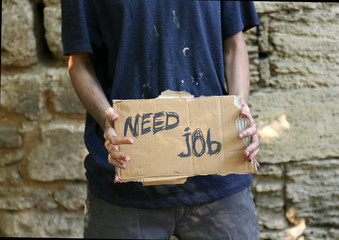There’s nothing I love more than hatching a plan that gets multiple birds stoned at once. And the one I’ve concocted to help employ our state’s ever-expanding unhoused population fits that bill perfectly.
Not only will it help put more money back into our local economy, but it will also help smaller businesses be more competitive. Most importantly, it will help those who are impoverished gain a steady stream of income.
Considering there were 53,000 people in Colorado on Medicaid who didn’t have stable housing during 2023 (with over 12,000 of them being completely without a home), it’s clear we need a change in direction. And for this change to realistically occur, all we have to do is fuck with big businesses like Walmart a little bit. But trust me, it won’t really be that bad for them.
The plan is simple: state legislators need to change the way they offer tax breaks to businesses. Mainly, they need to stop giving tax incentives to mega-corporations and instead, give them to small/local businesses that hire those with housing instability. And by small/local businesses, I mean those owned by a local proprietor that employs 300 people or less—something like that.
It’s important to note that local municipalities would also need to be involved.
To help with the legalities tied to employment paperwork, we could have the cities work with the Post Office to allow for some kind of temporary address or the like for unhoused individuals. Or, given that the highest concentration of houseless individuals is in Denver, and 1,000 tiny houses were recently erected to help fight the epidemic in the city, those overseeing the tiny house project could work in conjunction with those businesses as well for specific address needs.
And as I mentioned earlier, when you look at the numbers, the monoliths of capitalism really won’t be hurt that much by these changes.
Yes, they receive A LOT of tax breaks. For example, a Good Jobs First report found that between 2013 and 2021, Walmart alone was given 289 different tax breaks totaling over $6.5 million by Colorado.
Another example of corporate welfare in the Centennial state comes from the city of Johnstown. Where, in 2023, the city council approved a huge government handout to Kroger. The deal will give Kroger a 50% reduction in personal property taxes for 10 years and a one-time 75% rebate of building permit fees paid during the construction phase if Kroger establishes its fulfillment center in Johnstown and hires 100 people by mid-2024.
So far it appears Kroger will hit all those metrics.
When you realize that in 2022 Walmart generated $13.6 billion in profits, along with Kroger making a $4.13 billion profit in the same year, you can see how in the grand scheme of things, the mega-corps will be just fine if they lose these breaks.
Conversely, for a smaller business, a 50% property tax deduction would be massive.
Not only would it be a huge incentive to hire someone from the unhoused population, but the tax savings would also allow for the owners to keep their prices competitive with chain stores.
Plus, it would be investing more into local businesses, which helps the economy in a much more impactful way. Local First released a report showing that $68 for every $100 stays in the community when spent at a local business. When spending the same at a non-local business like a national chain, only $43 stays in your community.
With the unhoused population on the rise, I don’t see this public emergency dying down soon. I also know that there are many minds in power with a lot of ideas on how to combat this scourge … it’s an incredibly nuanced challenge. But I do think the solution I’ve presented is very realistic and has the power to effect change.
Because to be honest, the current system is just as shitty as not knowing where your next meal is going to come from.



[…] the template provided by Casa Bonita to get employees to a higher wage (or face penalties), or we figure out a way to re-route the millions of dollars giant corporations/restaurants are getting in tax breaks to local businesses that pay a […]
[…] signature doesn’t alleviate some of the other systemic issues that can lead to homelessness—like finding a way to employ thousands of homeless people while understanding that minimum wage is supposed to be a living wage—it’s an incredibly […]